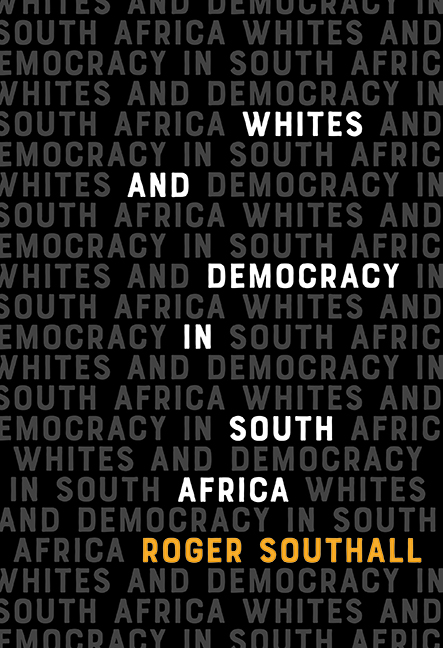1 - The Politics of White Rule
Published online by Cambridge University Press: 26 May 2022
Summary
Prior to the discovery of gold and diamonds in the Boer Republics of the Transvaal and Orange Free State in the late nineteenth century, the territories of the future South Africa were widely regarded as offering only marginal economic prospects for white settlement. The Boers (forebears of today's Afrikaners) were widely considered to be backward and primitive, and although the British colonies of the Cape and Natal offered some opportunity for agricultural and mercantile development, the militant resistance of much larger black populations to white territorial encroachment, involving costly and brutal wars, severely limited their appeal. Perceptions were only to change once it became known that South Africa possessed vast mineral resources, which resulted in a significant influx of settlers from Britain and elsewhere. Even so, South Africa's attractions were never able to compete on equal terms with the other more established British territories of settlement such as Australia, Canada and New Zealand.
In no other British settler territory was settlement so fraught. In order to secure free access to the newly discovered mineral resources for its nationals, Britain had launched an enormously expensive and brutal war against the two Boer republics in order to establish imperial hegemony. Confronted by a wily enemy which used unconventional tactics over a vast land, the British forces were to suffer numerous setbacks and humiliations before their superior numbers and resources resulted in the eventual defeat of the Boers. However, Britain's victory in the Anglo-Boer war of 1899–1902 was a hollow one, and left widespread devastation, Boer impoverishment, resultant resentment and massive social dislocation in its wake. Correspondingly, the formation of the Union of South Africa in 1910 out of four former predecessor territories (the British colonies of the Cape and Natal alongside the Transvaal and Orange Free State) represented a major climb-down whereby the British state under a newly installed Liberal government resolved to concede political control to those who had been defeated on the battlefield in exchange for guarantees about the security of British mining, financial and other interests.
Union was hailed as an act of far-sighted magnanimity by the British. The imbalance between the ‘Dutch’ and ‘English-speaking’ white populations was such that the former had the potential to dominate politically, were they to unite (the subordination of the indigenous population being assumed).
- Type
- Chapter
- Information
- Whites and Democracy in South Africa , pp. 21 - 42Publisher: Boydell & BrewerPrint publication year: 2022

